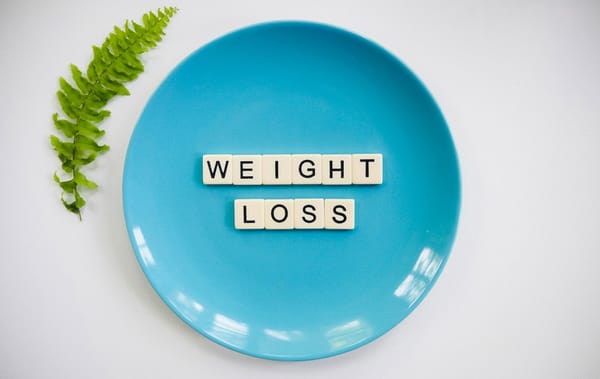Macros or Calories: What’s More Important for Fat Loss?

Understanding of Calories
Calories are simply a unit of energy. Everything you eat has calories, and every movement you make burns them. Your Total Daily Energy Expenditure determines how many calories you need to maintain your weight. In order to lose fat, you need a calorie deficit, which simply means consuming less than your Total Daily Energy Expenditure.
That's the very basic rule of weight management. You can be eating the healthiest food in the universe, like grilled chicken, steamed veggies, and quinoa, but in the long run, if you exceed your Total Daily Energy Expenditure, you'll end up adding body fat over time.
The opposite is also true, that you can eat, technically speaking, nothing but junk food and lose weight as long as you remain in a caloric deficit (which is very much not advisable).
However, this is where the context matters. Calories impact whether you lose weight, but not necessarily in the context of the quality of the weight cut. Many people just focus on calories, and that's where they encounter problems like muscle loss, low energy, poor recovery, and an unhealthy relationship with food. Then here come the macronutrients.
Why Are Macros Important?
Macros are just the short form for macronutrients: protein, carbohydrate, and fats, the three components of any food you eat. Therefore, it has the following:
- One gram of protein = 4 calories
- One gram of carbohydrate = 4 calories
- One gram of fat = 9 calories
A macronutrient doesn't stop only at numbers; it also decides for how long your body will use those calories you consume. In the case of fat loss, the macronutrient could control almost everything from hunger control, muscle preservation to energy levels up to the amount of fat you would lose eventually.
Protein: The Most Valuable Player in Fat Loss
The most important macronutrient during a diet is probably protein.
- Protein helps preserve lean muscle mass during a calorie deficit. Muscle loss not only affects appearance but also reduces metabolism, making fat loss harder over time.
- Protein makes up the least per calorie and keeps you fuller longer than carbs or fats. This leads to less craving and therefore reduces the chance of snacking uncontrollably.
- It helps keep the metabolism up. The higher the thermic effect for a specific food, the more calories spent during digestion. Therefore, the main contributing factor is the protein one.
Without enough protein, you would have developed the so-called “skinny fat,” losing both fat and muscle and ending up soft and undefined.
Carbs: A Controversial Player
Carbohydrates have been most often blamed for weight gain, but rightly they should be branded because:
- Your body will be most susceptible to high-intensity activity and almost entirely at ease with the use of carbs as the only source for energy.
- They are required to help you perform at your best during training. Low levels of energy resulting from not taking enough carbs may lead to poor workouts, hence a decrease in calorie burning.
- These will then help in the replenishment of glycogen stores; this is where the body will use it for recovery and maintain the intensity of training.
Low-carb diets are very effective for fat loss; however, they have the downside of reducing performance sometimes, mood swings, and finding it hard to sustain over a long period of time.
Fats: The Hormone Regulator
Indeed fats are essentials and not optional because:
- It controls the release of hormones, which has to do with fat burning, muscle growth, mood, healthy fats support the absorption of fat-soluble vitamins, A, D, E, and K, and help with brain function, cardiovascular health, and general well-being.
- Very low-fat diets have been associated with hormonal changes, mood disorders, and craving more for high-fat junk foods.
Calories vs. Macros: which is more important than for fat loss?
You can't avoid calories. They must be there. A calorie deficit is the primary requirement for all fat loss. There isn't a macro that could somehow flip the switch and make you lose weight without it.
A higher number of calories consumed will impact how effective fat loss is. The quality of loss will be shaped by macros; they determine what amount of muscle will be retained, how satisfied you are going to feel, and how energetic you are going to be, as well as influence adherence to a certain diet.
Someone could lose mass and be hungry and regain very quickly if they don't have enough protein in their intake. On the other hand, a balanced macro guy would be able to keep his muscles, enjoy workouts, satisfy needs, and maintain results.
To sum it up, calories determine your weight; macros determine how you look and feel during the process, given performance.
Practical Example
Let’s say the weight on two of them is maintained around two thousand-two hundred calories.
- Person A takes in like one thousand and eight hundred calories, mostly from processed carbs and fats and probably with very little protein.
- Person B would still have one thousand and eight hundred calories, but be internalizing balanced protein, healthy fats, and complex carbs.
Both technically run in a caloric deficit. However, Person B will more able likely:
- Retain more muscle
- Feel fuller post meals
- Perform better in workouts
- Crave less as compared to Person A who can lose weight but might deal with fatigue, muscle loss, and eventual rebound weight gain later.
For maximizing fat loss, how do you arrange both?
- Determine your TDEE using a good calculator or a guide from a professional.
- Create a moderate calorie deficit though, say 15–25% less than the TDEE.
- Protein intake should be around 0.8–1 gram a pound of body weight.
- The rest of the macros, carbs and fats, can be adjusted according to preference and activity level.
- Be flexible, not obsessive: Occasional indulgence in eating those favorite challenges should be allowed.
- Monitor progress and adapt it if needed since fat loss is not always linear.
The struggle is more of a common thing among people who want to lose body fat because they focus more on the calories, not giving due attention to the macros.
Bonus Tip: Just Be Consistent
It's not about one week of perfection, it's about a couple of months of consistency. Whether you are counting calories or focusing on macros or both, chase progress, not perfection.
Bottom Line:
Pick just one and prioritize it. If it has to be done with calories, get a deficit on those first. But it is the macros that will help you to achieve more out of it; like retaining more muscle with less hunger and better workouts for sustainable results.
So rather than just asking yourself how many calories you're eating, hold yourself accountable by questioning whether your food is providing a good balance of protein, carbs, and fats to make that calorie deficit work in your favor.
That's the real fat loss formula.



